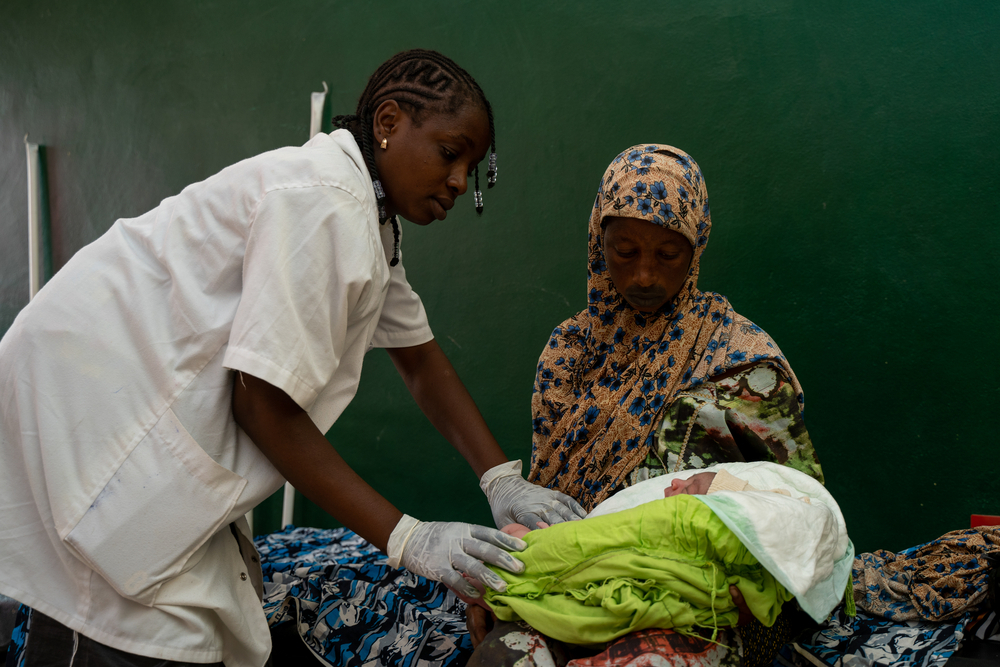In December 2023, Médecins Sans Frontières (MSF) began providing surgical activities at the Niono hospital in central Mali. MSF teams have now renovated the department, as well as providing additional resources to cater to the needs. People living in Niono and the surrounding area suffer the effects of armed conflict, with limited access to quality health facilities. In this MSF-supported surgery service, 69% of all operations carried out over the last four months have been on women and children, reflecting the toll this conflict takes on this population.
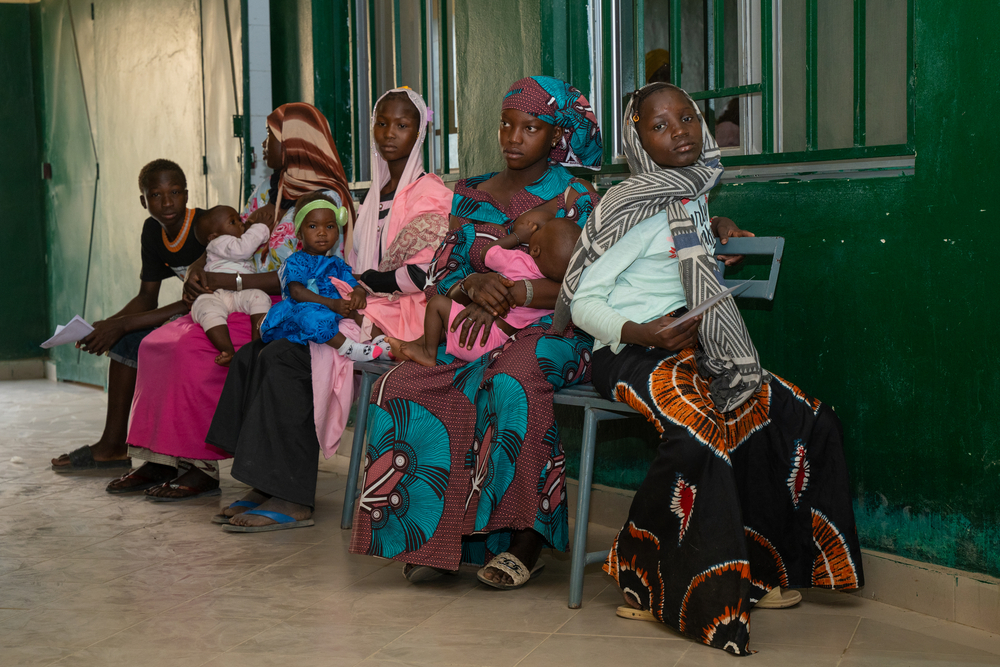
At just nine years old, Kadidia Dembélé, has already faced the extreme violence that has gripped northern and central Mali since 2012. At the end of December 2023, during an attack on her village, Diagui Wèrè, she was shot three times, once in the abdomen and twice in the buttocks, her mother was killed during the assault. Djenaba Kelema, her aunt, took her for treatment. “She was dying. I didn’t think she would survive,” she recounts. “She underwent several open surgeries. Fortunately, my niece is now back on her feet and continuing her treatment.”
Last year, the Ségou region, where Niono is located, saw a great deal of fighting between the security forces and non-state armed groups, marked in particular by the planting of improvised explosive devices. In Niono’s conflict-ridden outlying areas, it can sometimes be impossible for residents to move freely, cultivate their fields, go to the market or visit the medical centre. In early 2024, several clashes pitted Malian forces against armed groups around the town of Niono. In the villages where some of these clashes took place, the local population was caught between the different groups. Often with little or no access to health facilities in case of injury.
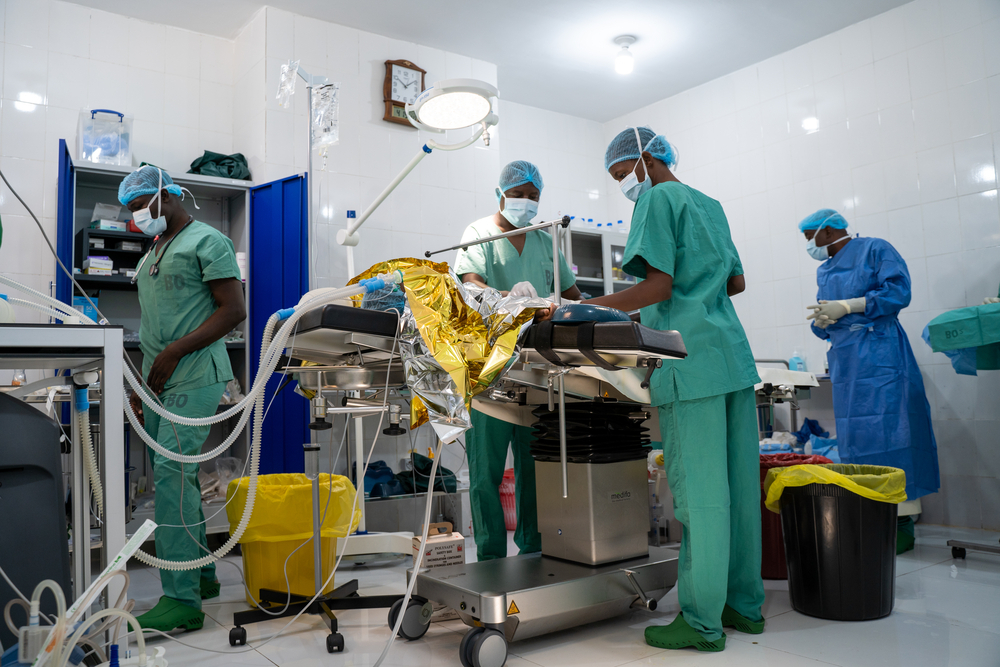
Faced with the increase in violence, MSF renovated the surgical service at Niono hospital at the end of 2023. From December 19 to April 30, over a period of four and a half months, 230 surgeries were performed to treat patients injured in armed conflict or accidents. 69% of these interventions were carried out on women and children. Cases of violent trauma linked to conflict included gunshot wounds, stab wounds and injuries caused by improvised explosive devices. Around 50% of these interventions for armed conflict were carried out on women and children. Other emergency cases, included road accidents, burns and domestic accidents; children in need of non-trauma related surgery have also undergone surgical treatment, in some cases lifesaving treatment for conditions like appendicitis.
Responding to other emergency cases, like road accidents
Little Tiefing Traoré, aged 9, had fallen off a donkey, fracturing his arm. “Ever since he fell, he had been complaining of pain in his arm,” says his mother, Kadia Diarra. “We treated him at home using traditional methods. We waited several days hoping that he would get better. But the delay caused complications. Tiefing was treated at the Molodo community health centre and then referred to the Niono hospital, where we were told he would have to have his arm amputated. Over time, his hand and forearm had become gangrenous following a fracture of his humerus.”
This new surgery project aims to assist the local authorities in caring for patients in need of surgery. Before the renovation and construction of the new surgical department, the hospital received several patients with bullet wounds who needed surgery. They were referred to the regional hospital in Ségou because the hospital didn’t have the resources to treat them. After the renovation and staff training, MSF began providing surgical care in December 2023. The new operating theatre has a capacity of 23 beds, additional medical staff, a larger medicine stock and biomedical equipment.
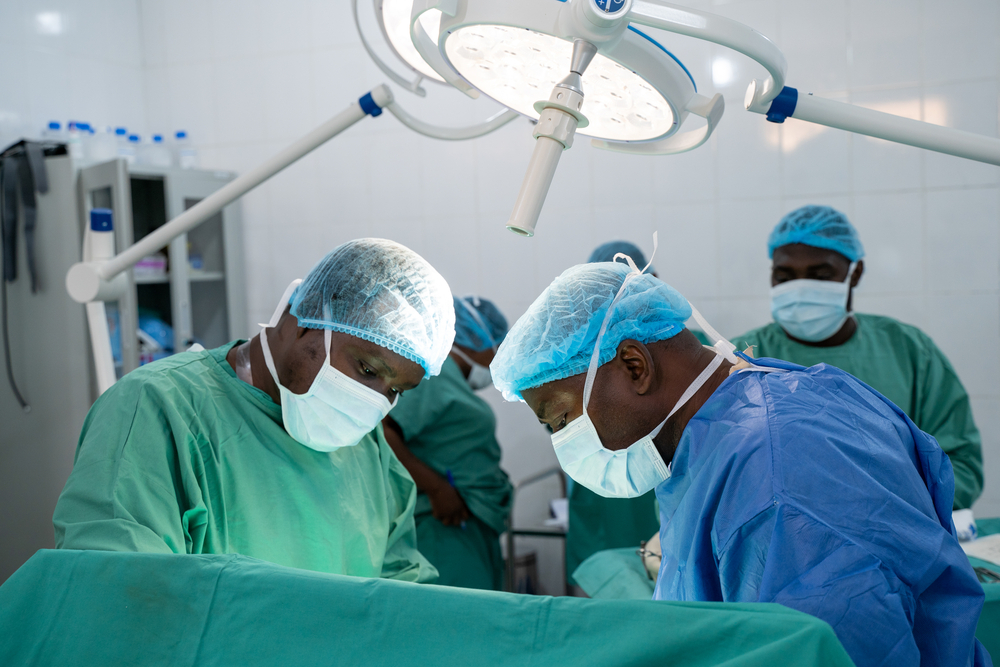
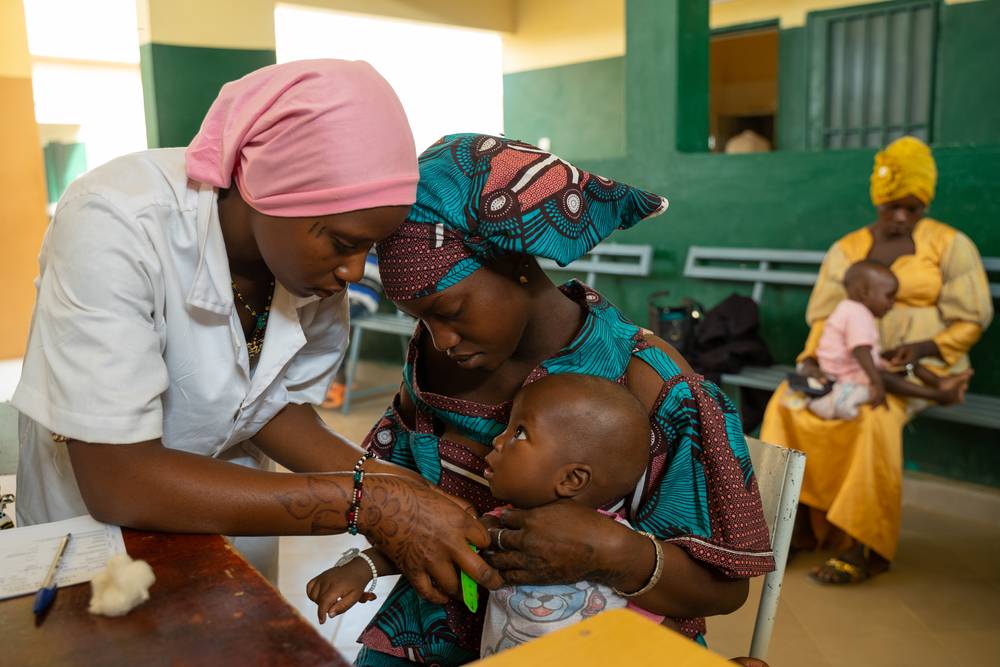
For surgery at the maternity unit, which MSF has been supporting since 2019. Alongside the 230 violent and accidental trauma operations, 289 obstetric operations were carried out over the same period, 275 of which were caesarean sections. The other interventions concerned cases of uterine rupture or perforation, or retroplacental haematomas.
An impartial, neutral and independent organisation
